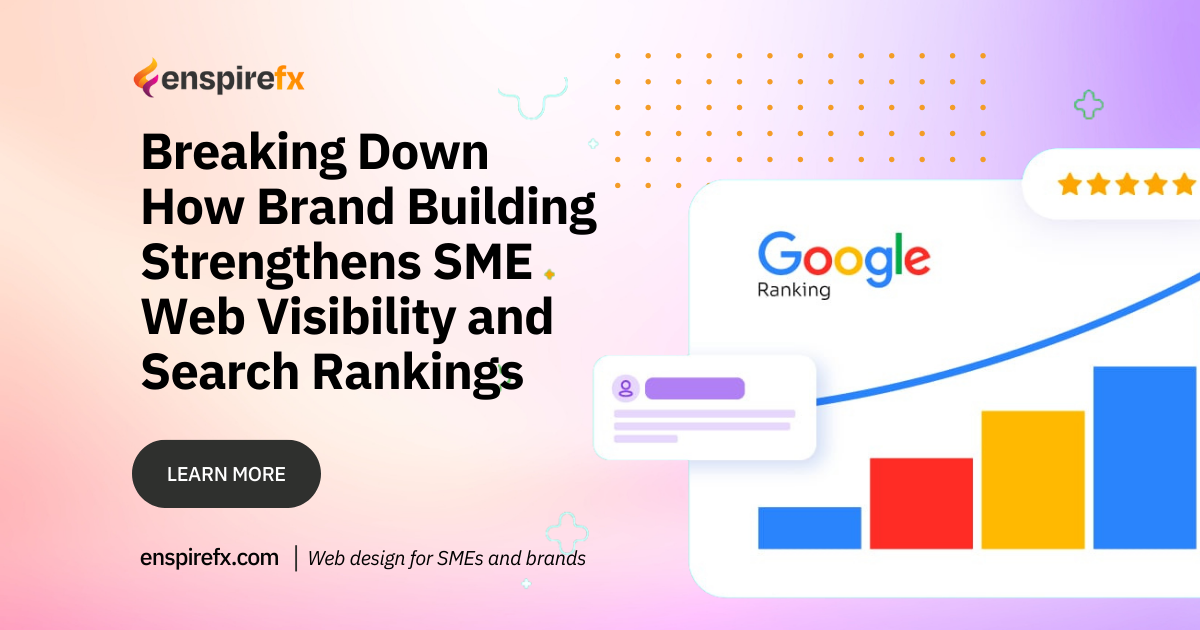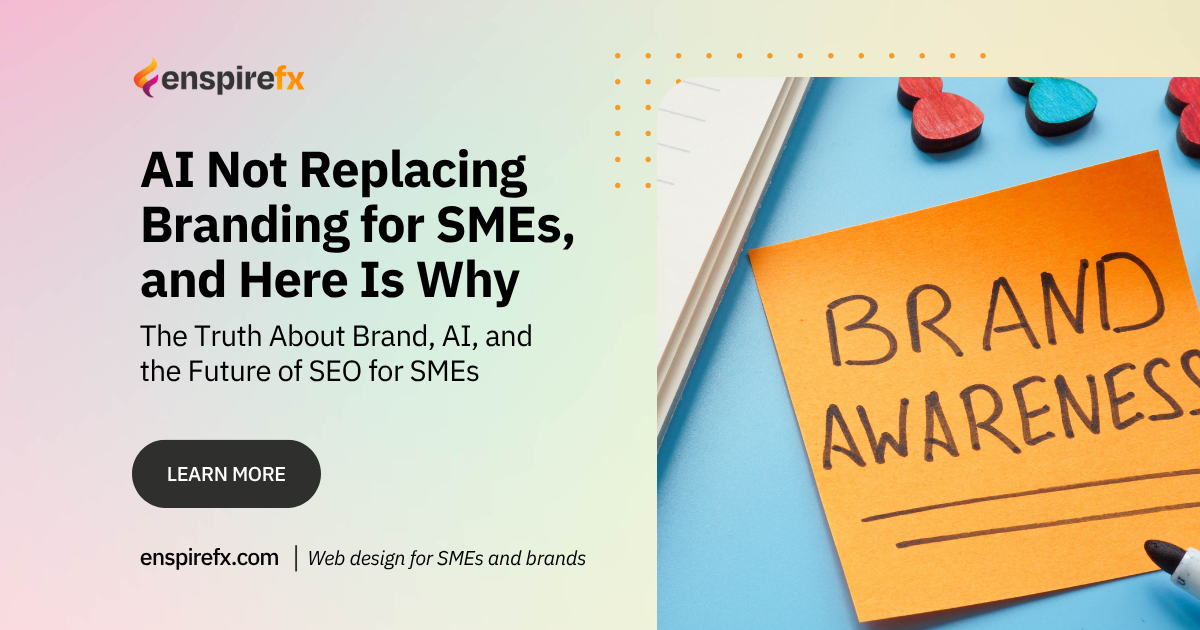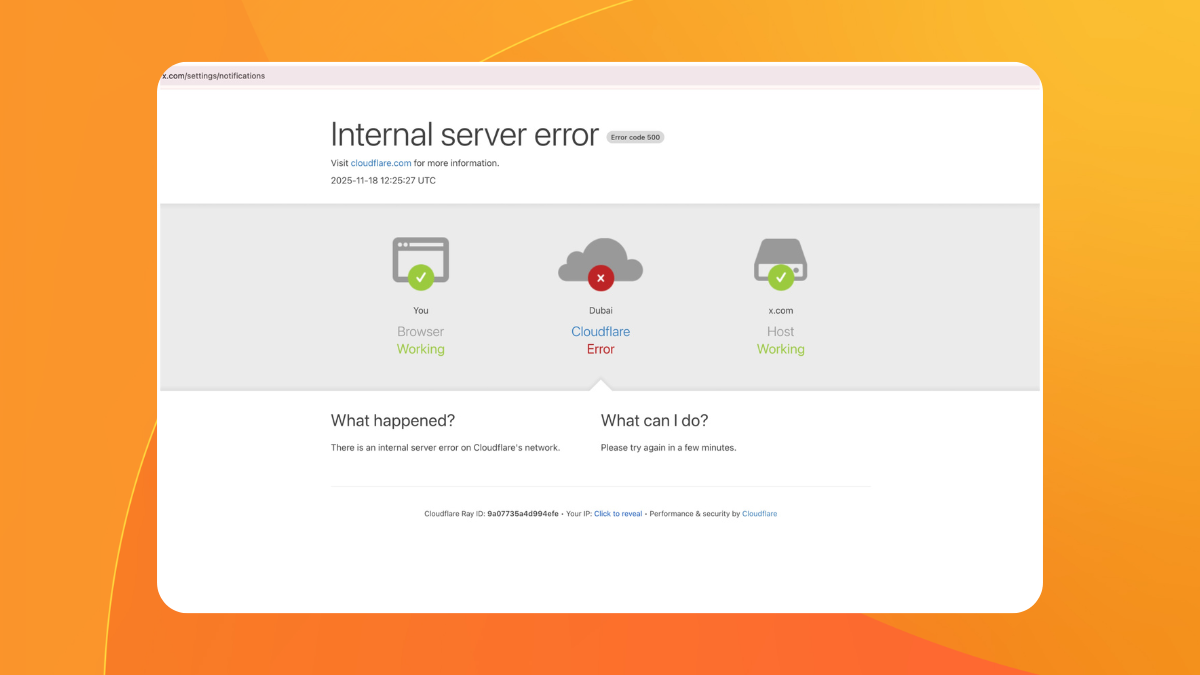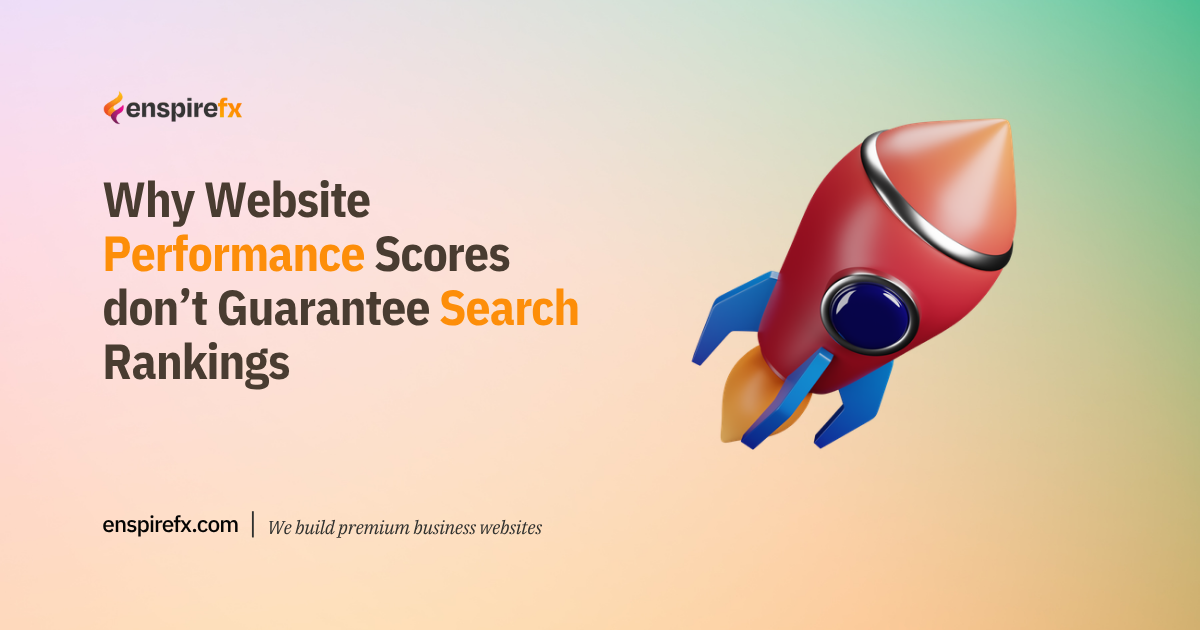Forget “AI SEO” – Here’s What Will Rank Your Website in 2025

Before we start, lemme clarify that Google and other search engines rank web pages, not websites, so this article is about what actually ranks website content, not the entire website as a whole.
That said, if you’re in marketing, you’ve probably been flooded with posts about “AI SEO” or “Generative Engine Optimisation (GEO).” Everyone seems to be talking about how AI will completely change search – how we need new tactics, new tools, new everything – or risk becoming irrelevant.
But most of that noise is just that: noise. The truth is much simpler. I can say for a fact that ranking well in 2025 still comes down to the same principles that have worked for years- clear, credible content, a trusted brand, and a strong user experience.
Professional Web Design for SMEs
We help businesses and brands scale their customer acquisition and thrive online. Let Ghana’s leading web design agancy develop a premium website for your business today. Click the quote button below to get started;
AI is changing how search results appear, but not why content ranks.
This article breaks down the data and strategies that actually matter right now. Forget the hype and focus on the habits that still drive visibility, clicks, and trust.
1. AI SEO More Hype Than Reality
The idea of “AI SEO” as a brand-new discipline is mostly a marketing invention. Software companies need new buzzwords to sell tools. Agencies need something new to talk about to sound current. It’s the same pattern we’ve seen before – remember when every company suddenly had “blockchain” in its name, or when every startup was somehow “Web3”?
AI absolutely matters, but I don’t buy the claim that you need an entirely separate optimisation strategy; it simply doesn’t hold up. The reality is that AI-driven search systems, including Google’s AI Overviews, still rely on the same signals of website authority, content clarity, business trust, and website user satisfaction. So while the packaging has changed, the fundamentals haven’t.
Edward Sturm summed it up perfectly:
“As far as I can tell, GEO and AI SEO are bubbles created by software companies and agencies jockeying for relevance. It’s bizarre how far the conversation has drifted from the facts.”
2. AI’s Real Impact on Search (and Why It’s Smaller Than You Think)
AI’s footprint in search isn’t as large or as universal as many headlines suggest. It’s growing, yes, but the panic is exaggerated.
Here’s what the current data actually shows:
- AI Overviews appear in roughly 12% of Google searches.
- Around 99% of those results are informational queries – the kind people use to learn, not buy.
- When they appear, they reduce click-through rates by about 34.5% on those queries.
So yes, there’s an impact – but it’s concentrated at the top of the funnel. Product, service, and transactional searches (the ones that actually drive business) are mostly unaffected.
In short, AI Overviews are changing how people discover information, not how they buy. That means the strategies for commercial intent – clear positioning, great product pages, fast load times, and strong trust signals – still matter the most.
3. There Is No Separate “AI SEO” Strategy
The idea that “AI SEO” requires a completely new approach misses the point. There’s no special formula for optimising for LLM-powered systems. What works for traditional search also works for AI-driven ones.
The best-performing content in AI summaries and Overviews tends to share three traits:
- It’s well-structured and easy to interpret.
- It’s trustworthy – written by real people or credible brands.
- It’s genuinely useful, not just optimised for clicks.
Google and OpenAI models both prioritise these same qualities. They may parse text differently, but the foundation of trust, relevance, and clarity still doesn’t change.
If you’re already building good content that answers real questions and earns backlinks naturally, you’re already “optimising” for AI systems. You don’t need to chase a new acronym.
So to put it simply, there’s absolutely no difference between SEO and GEO in terms of what you should do to rank.
4. Smarter Ways to Build Trust
– The “Alternatives” Hub
If you want to rank for high-intent searches, one of the most effective tactics right now is to build an “Alternatives” hub.
Most companies make the mistake of writing comparison articles like “Our Product vs Competitor X” and publishing them on their blog. But your blog isn’t the right place for that. The blog should be for updates, educational content, and thought pieces. When a customer is reading your blog, they’re already familiar with you. A hard comparison page there feels out of place.
Instead:
- Create a dedicated section on your site, such as enspirefx.com/alternatives.
- Add it to your footer navigation, where people naturally look for product research and resource pages.
- Build individual pages for each comparison, e.g. enspirefx.com/alternatives/kavaghana.
- Write with balance. Don’t trash your competitors – acknowledge where they’re strong and where you differ.
This structure helps users find what they’re looking for, and search engines love it because it’s organised, honest, and specific. Bitrix24 does this well – you can find their “Alternatives” hub linked in their footer for reference.
5. Turn Satisfied Customers into Search Assets
One of the most underrated SEO tactics right now is to encourage happy customers to share their experience on third-party sites.
Platforms like Reddit, Trustpilot, and Google Business Profile carry real weight in both traditional search and AI-generated answers. When an AI assistant searches for “the best tool for X,” it often draws on these public reviews and discussions, rather than brand-owned blogs.
Most brands underuse this opportunity because they’re afraid of bad reviews. But that fear is misplaced. People are naturally more likely to post when they’re unhappy, so if you never ask satisfied customers to review, you’ll only hear from the frustrated few.
By reaching out to your happy users and making it easy for them to leave honest feedback, you’ll shift that balance. Over time, that creates a strong footprint of genuine conversations that search engines and AI models both trust.
The Old Rules Still Win
You should see by now that you don’t need an “AI SEO” strategy. You only need a real SEO strategy – one that puts people first and builds trust slowly but consistently.
The hype around GEO and AI optimisation is mostly noise designed to sell new products. The best-performing websites this year are doing the same things they always have: publishing useful, clear, well-organised content that earns links and trust over time. This is why our website EnspireFX ranks number one for the best web design company in Ghana right now.
If you want to prepare for the future of search, forget the shortcuts. Focus on what doesn’t change – stuff like website authority, online credibility, and real user satisfaction with your business. The two examples I gave above, the Alternatives hub and the push for third-party reviews, will both help you to build lasting visibility.
So AI will keep reshaping search, but the brands that win will be the ones that stay grounded in fundamentals, not the ones chasing every new acronym that comes along.






